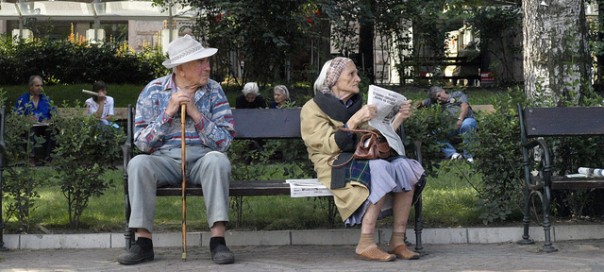A Significant Rise in the Cost of Living
Rising Costs in Cyprus: Cyprus has experienced a significant rise in the cost of living, a phenomenon that has not only impacted working families but also placed considerable pressure on one of the most vulnerable segments of society: pensioners. The increasing prices in basic necessities, healthcare, housing, and utilities have had a profound effect on pensioners who are often on fixed incomes. This demographic, typically reliant on state pensions or small private savings, is particularly vulnerable to economic fluctuations, making it harder for them to maintain a decent standard of living. This essay explores the key areas where rising costs are affecting pensioners in Cyprus, as well as the wider implications on their well-being and quality of life.
1. Rising Costs in Basic Necessities
The most immediate impact of rising costs in Cyprus has been seen in everyday essentials such as food, clothing, and transport. Over the past few years, inflation has steadily increased the price of groceries, making it difficult for pensioners to afford balanced meals. Items such as fruits, vegetables, dairy, and meat have become significantly more expensive, while pensioners’ incomes have remained relatively stagnant. A considerable portion of older adults already live below or just above the poverty line, and the current inflationary pressures exacerbate their struggles to cover basic expenses.
Moreover, transportation costs have also surged, with higher fuel prices making public and private transport more expensive. Pensioners, particularly those in rural areas, often rely on public transport to access essential services such as medical appointments, grocery stores, or social engagements. Increased transportation costs limit their mobility, further isolating them and reducing their access to the support they need.


2. Housing and Utility Expenses
One of the most pressing issues faced by Cypriot pensioners is the dramatic rise in housing costs. Rental prices in urban areas, particularly in cities like Nicosia, Limassol, and Paphos, have surged due to increased demand, the proliferation of short-term rentals like Airbnb, and insufficient housing supply. For pensioners who do not own their homes, this has created significant financial strain. Many are forced to allocate a substantial portion of their pension towards rent, leaving little room for other necessities.
In addition to rent, utility costs have also spiked. Electricity bills in Cyprus are notoriously high due to the country’s reliance on imported fuel for power generation. Water bills, too, have increased in recent years due to drought conditions and government efforts to conserve water through pricing mechanisms. For pensioners on a fixed income, these utility expenses can represent a substantial burden, particularly during extreme weather conditions where heating or cooling becomes necessary.


3. Healthcare Costs
Healthcare is another area where the rising cost of living has disproportionately impacted pensioners. While Cyprus has a public healthcare system, many older adults opt for private healthcare due to shorter waiting times and better access to specialized services. Private healthcare costs have risen sharply, leaving pensioners needing frequent medical attention, prescription drugs, or specialized treatments in a precarious financial situation.
Even within the public system, pensioners often face out-of-pocket expenses for medications, medical tests, or treatments not fully covered by the state’s General Healthcare System (GHS). For many older adults who rely on medication for chronic conditions such as diabetes, hypertension, or arthritis, these costs can quickly become unmanageable. The increasing healthcare costs compound other financial pressures, making it difficult for pensioners to prioritize their health without sacrificing other essential needs.
4. Social Isolation and Mental Health Impacts
The economic pressures faced by pensioners due to rising living costs have not only affected their physical well-being but also their mental health. Financial insecurity can lead to social isolation as pensioners cut back on leisure activities, social engagements, or even visits to family and friends to save money. In Cyprus, where strong community ties and social interaction play a crucial role in the quality of life for the elderly, such isolation can have severe mental health consequences.
Furthermore, the anxiety and stress associated with not being able to afford necessities or healthcare can lead to depression and a decline in overall mental well-being. Studies have shown that financial instability is closely linked to poor mental health outcomes in older populations, and the current economic situation in Cyprus has only heightened this risk.



5. Government Response and Social Support
The Cypriot government has implemented various measures to address the rising cost of living, particularly for vulnerable groups like pensioners. These include housing subsidies, energy allowances, and welfare programs aimed at alleviating some of the financial pressures. However, the adequacy and accessibility of these programs have been questioned, with many pensioners either unaware of available support or facing bureaucratic challenges in accessing it. In addition, the state pension in Cyprus remains

remains relatively low compared to other European countries. Although there have been incremental increases in pension payments, these have not kept pace with inflation, leaving many older adults struggling to make ends meet. For pensioners without substantial personal savings or family support, the gap between income and rising expenses continues to widen.

6. The Long-Term Implications
Rising Costs in Cyprus: The rising cost of living in Cyprus, coupled with the specific vulnerabilities of the pensioner population, paints a troubling picture for the future. As the population continues to age and more individuals retire, the financial strain on pensioners could worsen unless significant policy changes are implemented. Addressing the needs of pensioners will require a multi-faceted approach, including reforming the pension system to better reflect the cost of living, expanding access to affordable healthcare, and providing targeted financial assistance for housing and utilities.
Without decisive action, the long-term implications could include a rise in poverty levels among the elderly, increased social isolation, and greater demand on social services. Moreover, the overall well-being of older Cypriots could suffer, leading to a decline in the quality of life for an entire generation that contributed to the island’s economy and society throughout their working years.
Conclusion
The rising cost of living in Cyprus is having a profound effect on pensioners, who are struggling to cope with increasing expenses for basic necessities, housing, utilities, and healthcare. This demographic, often living on fixed incomes, is particularly vulnerable to inflationary pressures, which have left many older adults facing financial insecurity and social isolation. While the Cypriot government has introduced some measures to alleviate these challenges, more comprehensive action is needed to ensure that pensioners can enjoy a dignified and secure retirement. Failure to address these issues could have serious long-term consequences for both the well-being of pensioners and Cypriot society as a whole.
You May Also Like This
Pension Reform in Cyprus: https://anatolikilemesou.com/?p=3729
How to Travel on Badget: https://fortheloveofcyprus.com/how-to-travel-on-budget/




